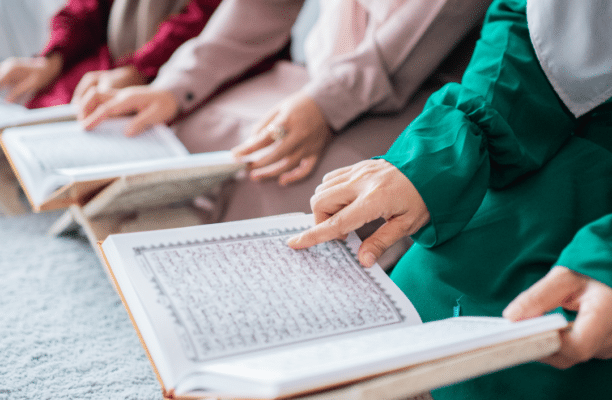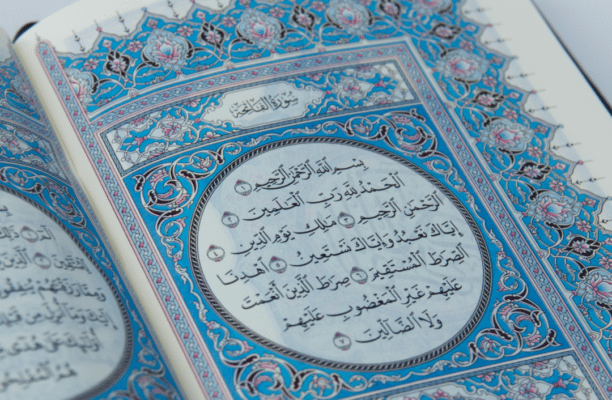The significance of the holy Quran to Muslims lies in its divine origin and central role in Islamic faith. Muslims worldwide revere the Quran as the literal word of God, revealed through the angel Gabriel to the Prophet Muhammad. This sacred text serves as a guide for personal conduct, morality, and spirituality, shaping every aspect of a believer’s life.
The Quran plays a pivotal role in the lives of Muslims, offering guidance on matters ranging from daily routines to complex ethical dilemmas. Its verses provide solace, wisdom, and inspiration, fostering a deep spiritual connection with the divine. Understanding the Quran is a fundamental aspect of practicing Islam, with its teachings guiding Muslims on the path of righteousness and submission to God’s will.
As Muslims strive to embody the values and principles outlined in the Quran, they find strength and solace in its verses during times of joy, sorrow, and uncertainty. The Quran’s teachings resonate across generations, transcending geographical boundaries and cultural differences, uniting believers in a shared faith and devotion to Allah. Embracing the Quran is not just a religious obligation for Muslims but a source of enlightenment, empowerment, and inner peace.
The Importance of the Quran
The Quran, the most important book holds paramount importance in the lives of Muslims and human beings worldwide for various profound reasons. Central to Muslim belief is the conviction that the Quran is not merely a text authored by humans but is the literal word of Allah revealed to the final Prophet Muhammad (PBUH) through the angel Gabriel. This direct divine origin gives the Quran a sacred status and unparalleled significance in Islam.
Literal Word of Allah
Muslims deeply cherish the Quran as the literal speech of the Almighty. This belief shapes their lives in profound ways. Every word, verse, and chapter of the Quran (the holy book of Islam) is viewed as a direct message from Allah, instilling a sense of reverence and obligation in adherents. This perception influences their daily actions, decisions, and interactions, guiding them toward moral righteousness and spiritual fulfillment.
Guidance for Living
Beyond its divine origin, the Quran, the book of Allah serves as a comprehensive guide for Muslim conduct and living. It offers a roadmap for navigating life’s complexities, providing insights into ethical behavior, interpersonal relationships, social justice, spirituality and all aspects of life. Muslims turn to the Quran for solace in times of distress, seeking wisdom and comfort in its teachings to steer their lives in accordance with Allah’s will and keep them on the straight path.
By embracing the Quran as the ultimate source of guidance and wisdom, Muslims find strength, solace, and purpose in adhering to its principles. It shapes their worldview, moral compass, and spiritual growth, making the Quran an indispensable cornerstone of Islamic faith and practice.

Spiritual Fulfillment
Connecting with Allah through the Quran holds profound significance for Muslims. When you recite and ponder upon the verses of the Quran, a deep spiritual connection is established, enveloping you in a sense of tranquility and closeness to Allah. This connection transcends the physical realm, offering solace and guidance in your spiritual journey.
Connection with the Almighty Allah
The Quran serves as a direct channel to communicate with the Divine. As you immerse yourself in the verses, the words resonate within your soul, fostering a profound relationship with Allah. The recitation of the Quran during the daily prayers evokes a sense of peace and devotion, reinforcing your bond with the Creator. This spiritual connection experienced through the Quran serves as a source of comfort and strength in times of joy and adversity.
Enhancing Faith
The Quran plays a pivotal role in fortifying the faith of believers. Through its teachings and guidance, it instills a deep-rooted belief in the core tenets of Islam. As you delve into the verses of the Quran, your faith is nourished, and your understanding of Islamic principles is enriched. The Quran serves as a beacon of faith, illuminating the path of righteousness and strengthening your resolve to uphold the teachings of Islam in your daily life.
Reading the Quran not only deepens your spiritual fulfillment but also reinforces your faith, fostering a greater sense of connection with Allah and the teachings of Islam. It serves as a cornerstone of spiritual nourishment, guiding you in your personal and communal worship practices. Embrace the Quran as a source of enlightenment and solace, enriching your spiritual journey and strengthening your bond with the Divine.
Source of Wisdom
The Quran serves as a profound wellspring of wisdom and guidance, enriching the lives of millions of Muslims worldwide. Let’s delve into how the Quran, as a divine revelation, shapes ethical values, virtues, and intellectual development.
Ethical Framework
Embedded within the pages of the Quran is an intricate ethical framework that serves as a compass for Muslims, guiding them toward righteous conduct and moral clarity. The Quran emphasizes principles of compassion, justice, honesty, and humility, nurturing individuals to embody these virtues in their interactions with others. By studying the Quran, Muslims gain insights into ethical dilemmas, finding solace and direction in its teachings.
Intellectual Enlightenment
Beyond its moral teachings, the Quran acts as a catalyst for intellectual enlightenment, encouraging readers to delve into deep reflection, critical analysis, and open inquiry. The Quranic verses spark contemplation, urging individuals to ponder the mysteries of existence, the complexities of human nature, and the vastness of the universe. Through engaging with the Quran, readers embark on a journey of intellectual growth, expanding their knowledge and fostering a spirit of inquiry.
By synergizing ethical guidance with intellectual stimulation, the Quran stands as a profound source of wisdom that not only shapes moral behavior but also nurtures intellectual curiosity and growth. Embracing the Quran as a beacon of light leads individuals towards a path of virtue, knowledge, and enlightenment, enriching their lives with divine wisdom and becoming better individuals overall.
.

Community Cohesion
The Quran serves as a unifying force within the Muslim community, fostering a sense of togetherness and solidarity. Through its teachings and principles, the Quran reinforces shared values and beliefs that bind Muslims together, creating a strong sense of community and belonging.
Shared Values
The Quran emphasizes the importance of compassion, empathy, and kindness towards others, instilling these values in the hearts of Muslims. By promoting understanding and tolerance, the Quran encourages harmonious relationships within the community, bridging differences and strengthening bonds of unity.
Social Justice
One of the profound teachings of the Quran is the call for social justice and equality. Muslims are inspired by the Quran to advocate for fairness and equity in society, standing up against oppression and injustice. This commitment to social justice drives Muslims to work towards building a just and equitable community where every individual is treated with dignity and respect.
By upholding these principles of shared values and social justice, the Quran plays a pivotal role in nurturing a cohesive and compassionate community where individuals support one another and strive towards creating a better world for all. Through its teachings, the Quran guides Muslims on a path of unity, compassion, and solidarity, reinforcing the ties that bind the community together.
Historical Preservation
The Quran plays a pivotal role in the historical preservation of Islamic cultural identity, serving as a cornerstone for Muslims worldwide. Through its teachings and narratives, the Quran acts as a guiding light that helps maintain and uphold the rich Islamic heritage that has been passed down through generations.
Cultural Identity
The Quran contributes significantly to the preservation of Islamic cultural identity among Muslims globally. It serves as a unifying force, fostering a sense of belonging and connection to a shared heritage. The teachings of the Quran, combined with cultural practices and Islamic tradition, create a strong connection and bond that transcends geographical boundaries. This bond not only strengthens individual faith but also reinforces the collective identity of the Islamic community.
In a multicultural world, where diversity is celebrated, the Quran stands as a testament to the unity and resilience of Islamic cultural identity. By emphasizing the importance of values such as compassion, justice, and humility, the Quran instills principles that are fundamental to the cultural fabric of Islamic societies. These values serve as a compass, guiding individuals on a path of righteousness and contributing to the preservation of a distinct cultural identity.

Legacy of Learning
The Quran’s legacy as a source of learning, scholarship, and spiritual enlightenment has endured throughout Islamic history. From the early scholars who dedicated their lives to studying its verses to contemporary seekers of knowledge, the Quran continues to inspire intellectual curiosity and personal growth.
As a repository of wisdom and guidance, the Quran offers valuable lessons that transcend time and space. Its teachings provide a framework for lifelong learning, encouraging individuals to seek knowledge, reflect on their beliefs, and deepen their understanding of the world around them. This legacy of learning has shaped Islamic education systems, universities, and centers of scholarship, fostering a culture of intellectual inquiry and spiritual enlightenment.
In essence, the Quran’s role in historical preservation is not just about safeguarding traditions and stories of the past; it is also about empowering present and future generations to carry forward the legacy of learning and spiritual enlightenment embedded in its verses. By upholding the Quran as a beacon of wisdom and guidance, Muslims continue to honor their heritage while embracing the evolving landscape of knowledge and scholarship.
Conclusion
The Quran holds immense significance in the lives of Muslims for a multitude of reasons. It serves as a divine guide, directing believers on the path set by Allah. As a spiritual anchor, the Quran provides solace, peace, and a sense of purpose in the turbulent seas of life.
Furthermore, the Quran acts as an ethical compass, delineating right from wrong and guiding moral conduct. It unites the Muslim community worldwide, fostering a sense of brotherhood and solidarity. Embracing the Quran means embracing a way of life that transcends individuality and connects believers to something greater than themselves.



